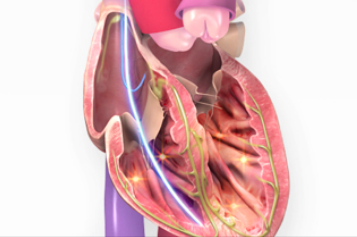When we are feeling well, we often don’t think about the complex interconnected systems that make up our body. The human body is amazing but difficult to understand, so it’s sometimes easier to react with treatment when something goes wrong as opposed to taking a proactive approach. Like any tragic event that happens in our life, health issues push us to reflect upon our choices, our relationships; we often remember what is most important, but then we go on with our busy lives. Our family tries to live our lives in the most positive way we can, even in the face of tough news or events, but it’s also good to sometimes take stock of what is truly most important. I often start workshops with this quote and each time I read it, it causes me to stop and think.

For those who may not know our family history, I will start in 2001 with an event that shook our family to the core, just before I left for my first international placement in Mexico. I didn’t meet Rose until 2002 so this was before meeting my life partner, having a family, and embarking on a 19 year international career. My sister Jackie was 31, playing softball, and dropped on the field when her heart stopped. Even though her team-mate, steps away, was a firefighter, certified with life-saving skills, there was still no reviving her with CPR. At the time, the autopsy was inconclusive and deemed likely to be a virus of the heart or something similar. I could write for pages on the influence my sister had on me, and how delivering the eulogy at her funeral was crucial closure for me, in an attempt to share her amazing life, in addition to sharing what an incredible person she was. For the sake of time, I will share the significance of medical progression, as we fast forward to 2018. My Nephew collapsed at a work placement for his University Co-op at Purolator. Our family is eternally thankful to the Purolator team who saved his life in addition to the fact that there was a defibrillator in that workplace and they knew how to use it. This has certainly highlighted the need for these devices in the workplace in addition to ensuring staff are trained to use them.
Once diagnosed it was conclusive that both my sister and nephew had/have ARVC (Arrhythmogenic cardiomyopathy.) ARVC is a genetic disorder, and we certainly know more now than we did in 2001. As sudden heart failure can sometimes be the first symptom to appear, it makes it very difficult to wrap your head around the diagnosis as you feel fine. We are thankful that there is now a genetic test to identify the gene that is not working properly, and ICD’s, Implantable Cardioverter Defibrillators,which is essentially a personal defibrillator which can react to a cardiac event at any time. I am next in line to receive this device which will be implanted on my ribcage. What an amazing day and age we live in, in which we are given this safety net for the rest of our lives. The only maintenance required is a battery change every 7 years, and who knows how that will evolve in the time to come. With my metal hips, separated shoulder and ICD, it seems I could be more robot than man now…
Surprisingly, we have learned that 1 in 7000 people have ARVC, and when you hear about athletes whose hearts have stopped suddenly (Recently Jay Bouwmeester) on the field or as they run, often they are carriers of this gene. In Italy they now require this blood test for any youth headed toward an elite sport career.
We feel very fortunate that we have access to excellent health care, and continue to keep perspective and live our best lives everyday as best we can. I personally believe that you can choose whether to see life as a series of obstacles testing your resilience, or as an amazing journey that sometimes has bumps on the road. Let’s choose the latter, grab the handlebars and enjoy the ride.



Wow Mike! Than-you for sharing! I had not heard of this disease. I’m so glad that there is more known about it now and that you are going to receive life saving surgery. I too love that quote from the Dalai Lama. Wishing you a speedy recovery.
So happy your family is able to take practical, proactive positives out of the hardships you have endured. Indeed, I often make the comparison between medical advances and the need for our profession to continue to reinvent itself and grow to face new challenges. If no one would choose the open heart surgery of 1980 for themselves or their loved one, why would we choose the curriculum and delivery of 1980 for our students?
Wishing you the best recovery possible and many “bike rides” to come!
You are an amazing guy, Mike. Good luck with your surgery. Love to you and your beautiful family. Cuz Phyl.
Your positive attitude and determination will be invaluable assets as you go through this next “upgrade”. You are in our prayers.
Thanks for sharing this very personal account, Mike, and all the best for today. One of our good friends also has with this genetic disorder, and dropped on a footpath after a cross-country run (he was incredibly fit). He was dead for a few minutes, but they managed to get a defib to him just in time. He now has a pacemaker and internal defib. It’s changed his entire life, and it’s been incredibly difficult giving up his fast, long distant running. But, he’s alive! He has a beautiful family. There’s so much to be grateful for and not take for granted.
Thanks for sharing Laura. I need to figure out how to stay healthy as I change what I do to exercise. Maybe your friend has some ideas?
Mike
Wow Mike, I had no idea about your sister but I can possibly see where your positivity for life stems from. Good Luck for today and the coming weeks.
A few years ago, I met a gentleman in the UK who had lost 2 children to this condition but was working tirelessly to try and get defibrillator machines into communities in the hope they could save others, his 2 remaining children or himself one day.
Thanks for sharing Mike! So much to be thankful for. I’m glad you received the ICD and that you will be able to live your life to the fullest without worry. I love the Dalai Lama quote you shared. We take a lot for granted and live in the past or future and not enjoying the present.